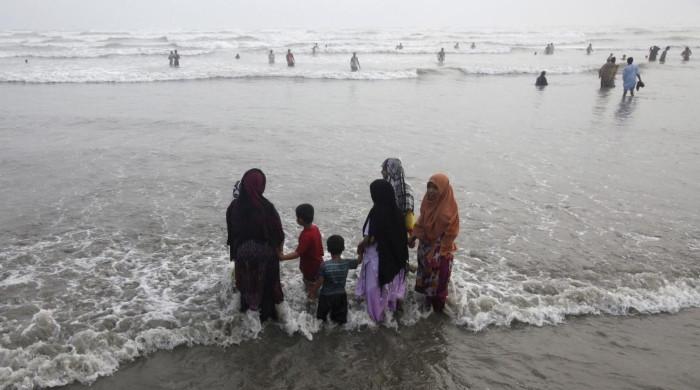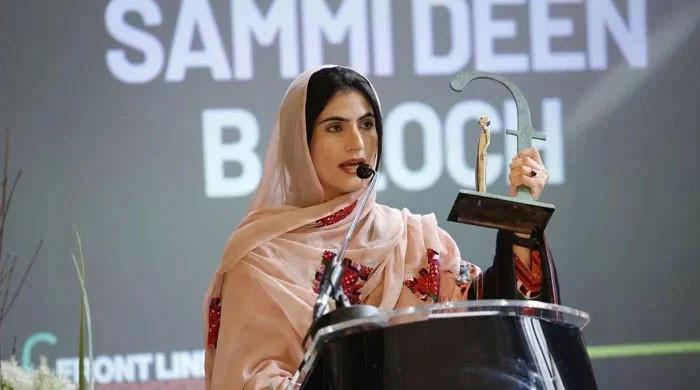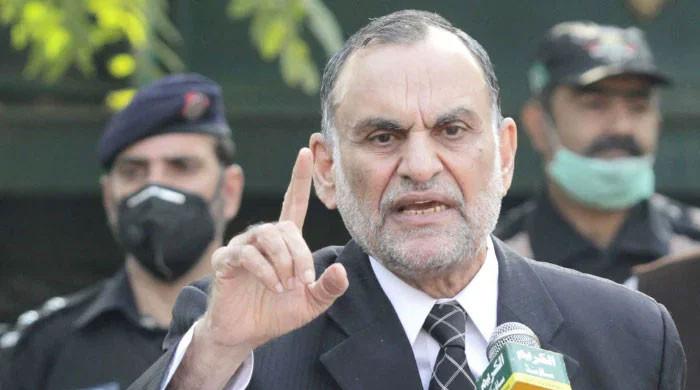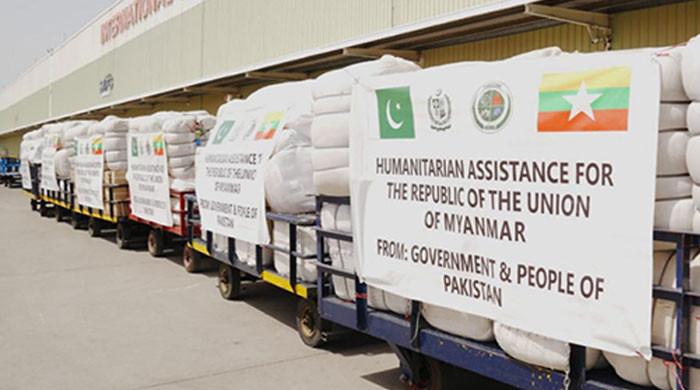What legal repercussions is PTI in for after ECP's prohibited funding ruling? Experts weigh in
After nearly eight years, ECP announces verdict on PTI's prohibited funding case, saying party received funds through prohibited means
August 02, 2022
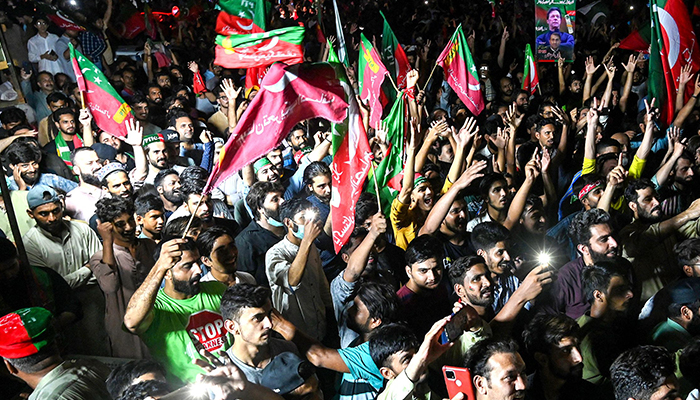
After a wait of nearly eight long years, the Election Commission of Pakistan's (ECP) three-member bench has announced the verdict on the PTI's prohibited funding case — which was earlier referred to as the foreign funding case.
As per the 68-page order, the commission states that the Imran Khan-led PTI did indeed receive funding from foreign companies and individuals, which it hid. For now, the ECP has issued a show-cause notice to the party to explain why the prohibited funds should not be confiscated.
With the much-awaited order out, Geo.tv reached out to legal and political experts to get their opinion on the matter.
'The government has no choice but to send a declaration to the court'
The federal government does not have much of a choice left now, after the order of the Election Commission, which has very clearly laid down that the PTI has been receiving foreign funds. It would be difficult for the government to not make a declaration that the party [PTI] is a foreign-aided party now. After that, it will be up to the Supreme Court to look into the declaration.
The definition of ‘foreign aided’ is very tight in the law and includes funding from foreign sources. It is another debate whether this is fair or not. But that is the law at the moment.
In the long run, there could be grounds for reforming the political parties' laws and making more improvements. For example, one question lawmakers could look into is whether there should be a limit to the number of funds received from foreign sources? But I would still argue that one should not leave the door open for foreign funding, as political parties are already free to raise funds from overseas Pakistanis, and even Pakistan companies are not barred in the Election Act 2017.
— Ahmed Bilal Mehboob, president of the Pakistan Institute of Legislative Development And Transparency
'Court can decide, not ECP'
The ECP has confined the scope of its ruling to confiscation of funds under Article 6 of the PPO and Rule 6(3) of the PPR; it hasn’t held that the PTI falls under the express prohibition of a "foreign-aided party", meaning it received such funds from a foreign government or political party.
The distinction between receiving prohibited funds and functioning as a foreign-aided political party has already been settled by the Supreme Court in Hanif Abbasi vs Imran Khan, and doesn’t extend to more than confiscation; that too is subject to another hearing.
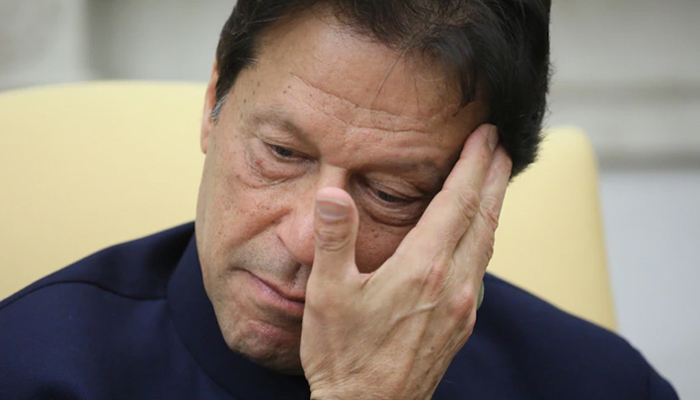
With regards to Khan, the Supreme Court has laid down in its recent jurisprudence that it is the intention of the lawmaker that is considered, and not just the fact of omission, before warranting a declaration of dishonesty or otherwise — that is another question that has yet to be answered.
In any event, only a court of law can issue such a declaration, not the ECP.
— Asad Rahim Khan, lawyer
'PTI can't have it both ways'
The matter before the ECP was simple: did the PTI receive funds from foreign sources against the law? Much distinction has been made by the PTI between a case of "foreign funding" and one of "prohibited funds".
This was not a case of PTI receiving funds from a foreign government or the political party of another country. But whatever you want to call it, the ECP has now found that the PTI received funds from foreign nationals and foreign companies.
And such funds are prohibited under the law. The ECP has also found that as chairman, Khan submitted "grossly inaccurate" forms in this regard.
As to what should happen after this, in theory, this could lead to the dissolution of the PTI and Khan’s mis-declaration could result in proceedings under Article 62(1)(f). But there are many intervening steps involved in both.
And while Article 62(1)(f) has been invoked for less in the past, we would do better to limit its scope rather than give it more teeth. Legally speaking, confiscation of funds may be a realistic outcome.
But at a moral level, this has wider implications. The PTI has long positioned itself as being untainted and above other political parties.
Today, even after the ECP’s findings, it still seeks to rely on inquiries against other parties as a crutch. Those should, similarly, be resolved sooner rather than later. But they don't affect the findings against the PTI. PTI can't have it both ways.
— Salaar Khan, lawyer
Survived 'dangerous phase'
The PTI has survived the "dangerous phase" as it is not a case of foreign funding, with the order establishing that the case relates to prohibited funding.
The problematic part is the false affidavit submitted by party chairman Khan as 62(1)(f) — sadiq o ameen — proceedings can be initiated against him in light of the Hanif Abbasi judgment.
In the judgment, the three-member bench held that proceedings under 62(1)(f) require a clear view for the court, and now, it is there.
But there's a catch. There's a disagreement among the courts, with various orders issued over whether the ECP is a court or not.
For the Supreme Court, to disqualify someone, it needs clear undisputed facts to initiate proceedings under 62(1)(f).
For now, the PTI has survived, and it will now challenge the verdict in the courts, and the political landscape will change.
— Barrister Ahmed Pansota
ECP’s ruling can have 'serious consequences'
The verdict could have serious consequences for the PTI. Neither the government nor the opposition can be stabilised until the legal flaws are fixed.
This is the time for the country’s political leadership to introduce legal reforms.
— Irfan Qadir, lawyer
'Rule of law'
There should be a rule of law in the country and it should be applicable to everyone equally. Nawaz Sharif was disqualified despite not receiving a salary from his son's firm, and on the other hand, PTI has accepted funds from foreigners.
In case the PTI does not satisfy the ECP, its funds, which are secured through illicit means, can be seized.
— Latif Khosa, legal expert
'Standards need to be more stringent'
There are two reasons why the government cannot and should not attempt the declare the PTI a foreign-aided party.
1. The intent behind the political finance law does not support such a reference.
2. Neither does the politics.
A “foreign-aided” party is broadly one that receives money from a foreign government or political party - the idea being that a political party could be influenced by special interests or the economic and foreign policy agenda of another country over its own sovereign interests. However, the fine print also includes donations or “any portion of its funds from foreign nationals.” A reading of the ECP order lists 34 foreign nationals, and more damningly, the revelation in Simon Clark’s Financial Times story that UAE minister and member of the royal family Sheikh Nahyan contributed funds to the PTI through Abraaj.
But the ECP has been careful to make a distinction between ‘prohibited’ and ‘foreign-aided’, basing it on the 2017 Hanif Abbasi Supreme Court judgement.
As far as politics go, there could be a temptation to apply the same stringent standards Imran Khan set for his opponents. In the Khawaja Asif case, for instance, Khan declared Asif’s iqama a conflict of interest given how the PMLN leader held strategic portfolios, accusing him of money laundering as the icing on the cake. In a tweet, Khan said: “Nowhere in the Western world would such crimes be tolerated from a Parliamentarian.”
But the standards for declaring a political party with a large Pakistani vote bank “foreign-aided” needs to be more stringent, with evidence to demonstrate how Pakistani interests or policy-making has been directly affected by such donations. Traitor certificates should be used sparingly. After all, one could also argue that the coalition government’s ordinance barring courts from examining the sale of the assets and shares of government companies is against Pakistani interests since it renders such transactions above the scrutiny of Pakistani courts. This is not a line to be crossed lightly.
— Amber Shamsi, journalist








